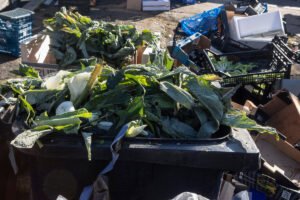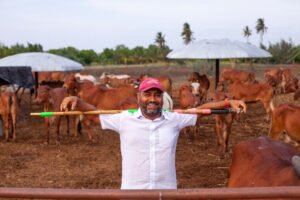Tuesday, 17 February 2026
Tackling Singapore’s Food Security: Serving up Solutions for 2023
Achieving food security requires a whole-of-industry approach During the Singapore Budget 2023 announcement, Deputy Prime Minister Lawrence Wong highlighted the importance of building a more resilient Singapore. From ensuring that supermarket…

Achieving food security requires a whole-of-industry approach
During the Singapore Budget 2023 announcement, Deputy Prime Minister Lawrence Wong highlighted the importance of building a more resilient Singapore. From ensuring that supermarket shelves were well-stocked during the height of the pandemic to securing ample stock of frozen chicken during the Malaysia chicken export ban, these efforts have allowed us to weather through the disruptions of the past three years.
Even as we emerge from the pandemic, Singapore will need to continue reviewing its strategy for food security. As Singapore currently imports over 90 percent of its food, the need to build greater resilience to withstand external shocks and disruptions has become more acute, especially as the country braces itself for strong headwinds like rising food costs and an uncertain global environment.
Singapore has several ways to tackle its food security issue in the short to medium term. First, it can bring its supply chains closer to home by adopting local sourcing and food production. Besides bolstering its food supply, opting for locally produced products can also change how value is distributed along the supply chain and shorten traceability paths on products, reducing the carbon footprint.
Furthermore, industry players can also do their part in building a more resilient food future by embracing a ‘farm-to-fork’ approach and incorporating sustainability into all stages of their supply chain. One example is leveraging technology and innovation to better track and reduce food waste. Here at Sodexo, our WasteWatch programme utilises intelligent waste-management technology that makes it easy for teams to collect precise data on food waste in their restaurant and drive changes to cut food waste. Since implementing this programme in Singapore in 2016, we have offset over 5000 metric tonnes of carbon emissions, or the equivalent of over 1000 homes’ electricity consumption in one year.
Ultimately, achieving food security requires a whole-of-industry approach. Accelerating innovation in the agri-tech industry will also be crucial for us to switch from resource consumers to self-sufficient and sustainable producers.
Abel Ariza, President (Singapore & Malaysia), Sodexo
Technology
Carlsberg Launches AI-Crafted Lunar New Year Packaging
Feb 17, 2026 | Beverages
FAO Experts Assess Risk of Antimicrobial Resistance Spreading via Food Loss and Waste
Feb 17, 2026 | Sustainability
Setting the Standard for Sustainable Ingredients
Feb 16, 2026 | Ingredients
Food Testing
Redefining Trust in Organic Foods through Independent Testing
Feb 13, 2026 | Food Safety and Testing
AFNOR International Eyes Global Food Safety Growth with HACCP Group Takeover
Feb 04, 2026 | Australia
More Popular
Cerealto Sells Pasta Unit to Specialist Player Cerealis
Feb 17, 2026 | Company News
New Nestlé Vital nutritional drink targets rising demand for healthy-ageing solutions
Feb 17, 2026 | Company News
Carlsberg Launches AI-Crafted Lunar New Year Packaging
Feb 17, 2026 | Beverages






